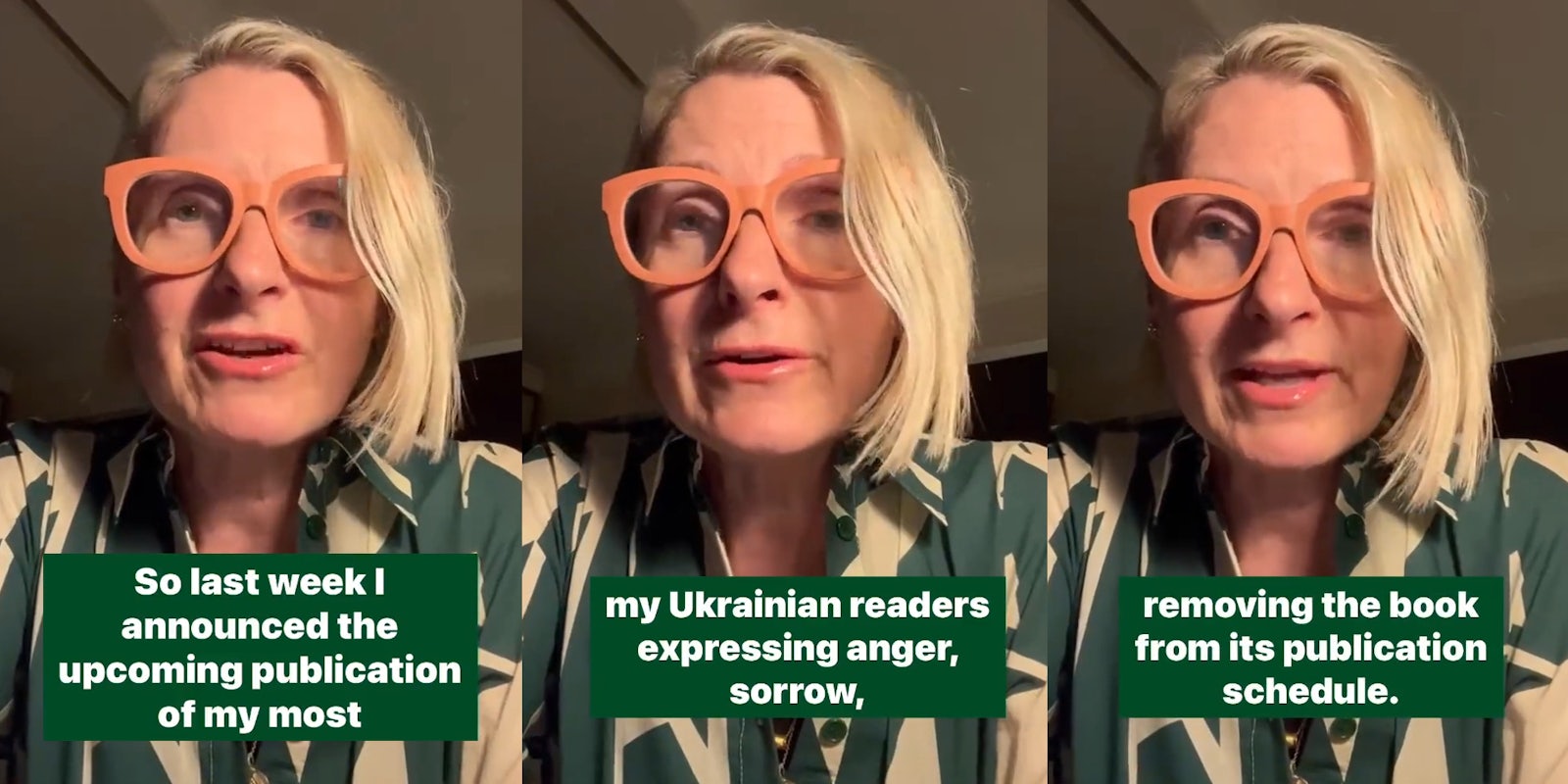Last week on Good Morning America, Eat Pray Love author Elizabeth Gilbert announced her next novel, due out in February 2024. Six days later, she canceled the book’s release—a decision that stemmed from Goodreads backlash, stirring controversy in the publishing community.
The novel in question, The Snow Forest, is set in mid-20th-century Siberia. Right now it has over 500 one-star reviews on Goodreads, all objecting to the book’s Russian setting, which detractors argue glorifies Russia and is therefore harmful to Ukrainian readers.
In a video posted on Monday, Gilbert said that she had “received an enormous, massive outpouring of reactions and responses from my Ukrainian readers, expressing anger, sorrow, disappointment, and pain about the fact that I would choose to release a book into the world right now—any book, no matter what the subject of it is—that is set in Russia.”
The decision to delay The Snow Forest appears to be a personal choice from Gilbert rather than a move directed by her publisher. However, it’s still sparking concerns about the influence of Goodreads as a source of self-censorship.
All of The Snow Forest‘s top Goodreads reviews accuse Gilbert of romanticizing Russia in the midst of a genocide. “during air alert due to russian missiles i see this annotation,” one commenter wrote. “how wonderful to live somewhere far from russia and write about it. how cool to romanticize colonizers.”
Others compare the book to a positive portrayal of Hitler or argue that it’s morally wrong to write a sympathetic portrayal of Russian characters. “There is nothing interesting in them, nothing human,” reads one of the most popular reviews, while another argues that Russians have “no soul,” only “total obedience and undeserved pride,” and are a “pure evil” that “cannot be civilized.”
Gilbert’s book has nothing to do with the current war in Ukraine. It’s a historical novel about an isolated family of religious fundamentalists who, in Gilbert’s words, “remove themselves from society to resist the Soviet government and try to defend nature against industrialization.”
Why authors are worried about Goodreads moderation
As Gilbert’s video spread on Twitter, other writers expressed concern about the impact of negative Goodreads reviews. People were dismayed both by the lack of content moderation from Goodreads and by the idea that any depiction of Russia might be interpreted as an endorsement of military atrocities under Putin’s regime.
“A book can be about Russians,” tweeted novelist Gretchen Felker-Martin, in a disbelieving response to Gilbert’s video. “Russians are people, not orcs from Mordor.”
Political journalist Osita Nwavenu shared a similar sentiment, writing, “The Russian people are human beings. Stories can and should be told about them. They are not reducible to the actions of their present government. This stuff over the last year has been pretty unsettling, honestly.”
Others questioned whether this same rationale could be extended to books about Germany—or indeed the U.S. “Imagine if there was anything like this energy in response to the Iraq War,” remarked one Twitter user. “All stories set in the USA are now inherently offensive.”
Meanwhile, others directed their ire at Goodreads’ flaws as a platform. Acquired by Amazon in 2013, Goodreads holds a lot of influence in the industry, and its user-generated ratings can be controversial. The Snow Forest is a clear example of review-bombing, receiving 532 one-star reviews within days of its announcement.
There’s a concern that Gilbert’s decision could set a precedent for how publishers handle Goodreads backlash. Unlike Gilbert, most authors are low-income and have little control over their books’ publicity campaigns.
While Goodreads reviews can inspire meaningful discussion, they’re as susceptible as any other platform when it comes to bigotry and harassment campaigns—including extortion scams over review-bombing. Detractors often complain that the site’s content guidelines aren’t fairly enforced. This is a particular problem for marginalized authors, but some of The Snow Forest‘s reviews also appear to violate the site’s rules against hate speech.
Film review platforms like IMDb and Rotten Tomatoes have been slightly more successful in handling this kind of backlash campaign, most likely due to the influence of studios like Disney. For instance, Captain Marvel and The Little Mermaid were review-bombed by sexist and racist trolls, prompting review sites to remove hateful comments and edit their audience scores.
However, most authors don’t have a Disney-level PR department to back them up. And as Elizabeth Gilbert’s reaction proves, the relationship between authors and Goodreads commenters can feel a lot more personal, with authors feeling pressure to confront this kind of controversy head-on.
The Daily Dot has reached out to Goodreads for comment regarding its content moderation policies.



